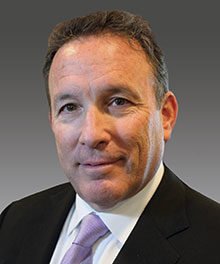Bank Bailout

Silicon Valley Bank (“SVB”) and Signature Bank (“SB”) both got bailed out by the federal government last weekend. Many breathed a sigh of relief that it didn’t trigger a nationwide banking crisis, but the situation was a powerful reminder of how vulnerable banks can be—despite all of the regulations passed after the 2008 crisis nearly took down the American economy. And as I wrote this yesterday, First Republic Bank was given a $30B lifeline by a group of 11 banks, including JP Morgan, Citi, B of A & Wells Fargo.
SVB & SB were unique in comparison to larger money center institutions in their different niche focuses, rather than a broad-base set of customers, their high percentage of uninsured deposits and their investment portfolios that continued to lose value as the Fed increased interest rates.
When SVB disclosed its nearly $2B loss on its investment portfolio late last week, that disclosure caused a classic run on the bank, with depositors trying to get their money out before it was too late. SVB was seized last Friday, and the focus turned to SB, which had an outsized portfolio of Crypto businesses, which started a run on that bank late Friday into the weekend. SB was out of business by Sunday night and the FDIC, the Fed and the Department of Treasury all worked together to ensure NO depositor would lose any money, irrespective of how much their balances were. Disaster avoided, at least for now.
Although many of us like to vent about restrictive banking practices, it’s times like these that often bring a new appreciation for institutions that do things by the book. Compliance can be time consuming, even with expert help, but there’s a method to the madness: Maintaining confidence in our banking system. When banks get a little too free-spirited and entrepreneurial, it gives many of us the jitters. It’s better for everyone if banks are as boring as possible.
If there’s one silver lining in this crisis, it was seeing how seriously federal regulators took it when banks that serve the entrepreneurial community faltered. Although many Americans have not heard of Silicon Valley Bank, it had a huge footprint because so many job-creating startups deposit their money there, and so many influential investors back those startups.
Being an entrepreneur can be a lonely journey at times, and one where it’s easy to feel misunderstood by…almost everyone else. But apparently, the federal government knows that quirky innovators can be important contributors to the economy. That’s good news because it hasn’t always been the case. We’re an entrepreneurial firm serving entrepreneurs, and we appreciate the growing recognition they are getting for all that they do to keep our economy humming.
Can’t wait to see where Warren Buffet deploys his sizable stash of capital in the coming days.
